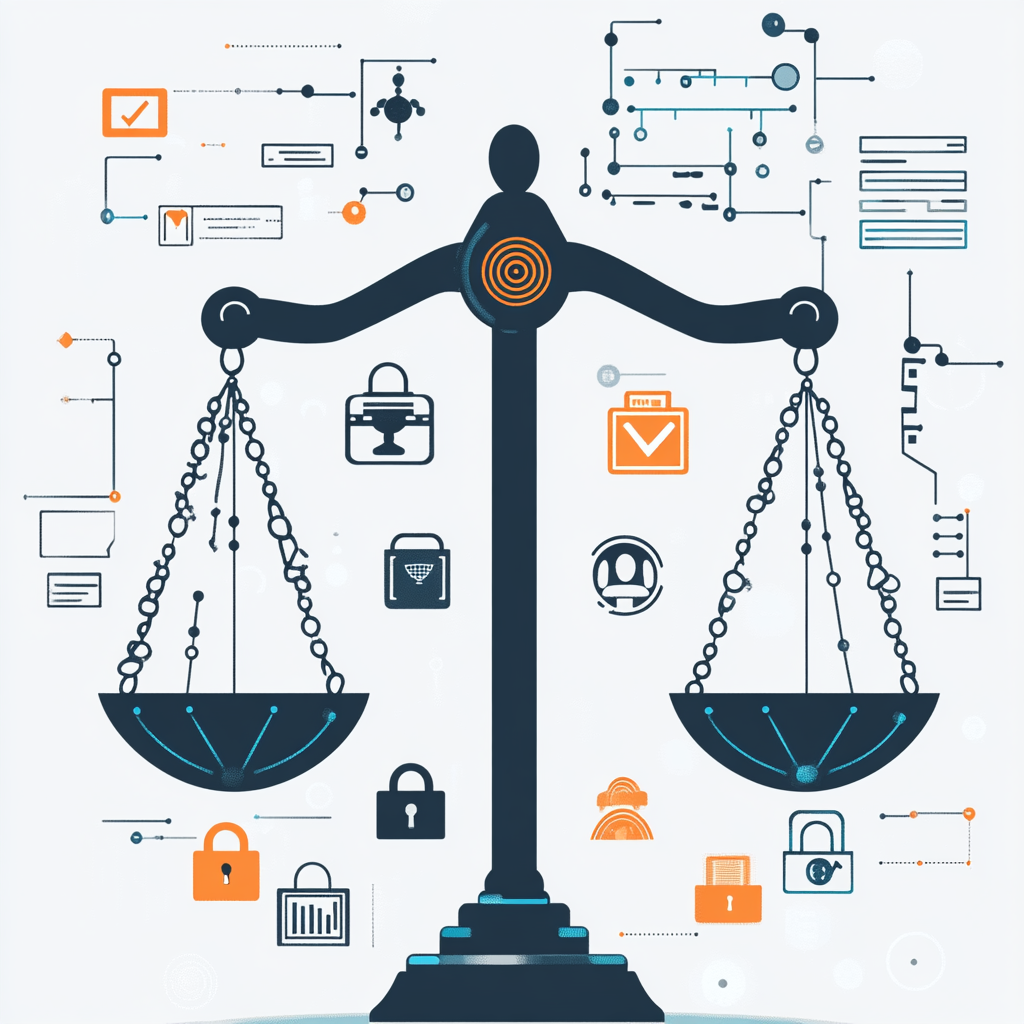
“Navigating Ethical Challenges and AI Innovation in Legal Practice”
In the wild world of the legal profession, where the stakes are high and the complexities endless, artificial intelligence (AI) bursts onto the scene like a glittering knight, promising to wield its sword of efficiency and innovation with flair. But hold your horses; while AI raises the banner of progress, it also drags along a dark cloud of ethical considerations that are as heavy as a judge's gavel. How do we strike the magical balance between embracing this technological marvel and ensuring that our commitment to fairness, justice, and professional responsibility doesn’t get lost in the shuffle?
So let's dive deep into the labyrinth of AI in legal work, shining a spotlight on both its dazzling features and its shadowy pitfalls. And trust me, you won't want to throw in the towel after reading this!
First, let’s talk about the role AI plays among legal eagles strutting about their courtrooms. Imagine AI cutting through mountains of paperwork, automating document reviews and contract analysis quicker than you can say “legalese.” Tools like LexEdge are making legal processes as smooth as butter, trimming away the fat of inefficiency, minimizing errors, and elevating client services to the next level. Sounds great, doesn’t it? But don’t pop the champagne just yet. Alongside efficiency dances a whole troupe of ethical dilemmas that threaten to trip us up.
Now, let’s kick off the ethical considerations with the big elephant in the room—bias and fairness. AI systems are like hungry sponges, soaking up the data they're trained on. But what happens if that data is tainted with bias? This becomes an issue that can shatter the very principles of fairness and justice in legal contexts. If an AI trained on biased data makes recommendations or decisions, it can do so with a flair for bias amplification that could sabotage the justice system faster than a lawyer can shout “objection!” Therefore, it’s vital for law firms and AI developers to embrace transparency like an old friend, ensuring that bias is identified and mitigated well before it wreaks havoc on a case.
Next up, accountability. In an ideal world, AI would be like a trusty sidekick—helpful, efficient, but always under the watchful eye of its human counterpart. Lawyers need to remember that they are the ones holding the gavel, not the algorithms. Establishing clear boundaries regarding the role of AI is essential; a firm requirement of human oversight is non-negotiable. Think of it as the superhero law—AI assists, but the responsibility rests firmly on the shoulders of the lawyers. They must navigate these waters carefully to avoid crumbling under the weight of the AI’s decisions.
Then we stumble upon the matter of confidentiality and data security. The strings of attorney-client privilege cling to legal practice like a warm winter coat. But with the rise of AI, especially with cloud-based systems and third-party vendors lurking in the shadows, concerns about client confidentiality come rushing in. Picture this: a client’s sensitive data could end up on the proverbial chopping block if law firms aren’t diligent about ensuring their AI tools comply with data protection laws like GDPR or CCPA. They must install security measures as bulletproof as a lawyer's argument, ensuring that encryption and access controls are fully operational. Anything less would be like leaving the back door wide open during a barrage of legal sharks.
As we continue down this rabbit hole, let’s take a moment to focus our magnifying glass on competence and training. Today’s lawyers need to embrace AI technology with open arms. But let’s be real, using AI isn’t just about plugging in an algorithm; it’s about understanding how these tools work, their limitations, and the ethical risks they pose. Law firms must pour resources into training their teams—because if lawyers don’t know their AI, it robs them of the very competence they strive for. You wouldn’t hop on a race car without knowing what the buttons do, right?
And there’s more! AI has the tantalizing potential to democratize legal services and make them more accessible to underrepresented populations. But hold your applause because this brings us to the ethical crossroad of access to justice. What good is AI if only a select few can afford it? The legal profession must ensure that their AI implementations are inclusive, with a pricing model that welcomes everyone to the table. This isn’t just a nice-to-have; it’s an essential part of the fundamental pursuit of justice.
So, how do we navigate this delicate terrain? We need ethical frameworks to safely guide us through the murky waters of AI in law. Let’s break it down:
-
Transparency: Legal professionals need to peer through the smoke and mirrors. AI systems should lay their cards on the table, explaining how decisions are made, so biases and errors can be identified and fixed.
-
Accountability: Each lawyer must remember that they are the masters of their legal domain. AI’s role should never supersede that of the practitioner. It’s a collaboration, not a takeover.
-
Fairness and Justice: The tools must promote fairness and actively combat biases. Developers and legal professionals must be vigilant and take action to prevent discriminatory outcomes.
-
Privacy and Security: Protecting client data should be the cornerstone of any practice leveraging AI. Compliance with privacy regulations is a must—no shortcuts, no exceptions.
-
Training and Competence: Today’s legal professionals must be equipped with the know-how to navigate AI tools ethically and efficiently.
Now that we’re armed with the right ethical framework, let’s talk practicalities. As the integration of AI becomes ever more prevalent, it’s essential for lawyers to make thoughtful decisions. How do we go about safeguarding the profession?
-
First up, conduct due diligence when selecting AI tools. Review vendors rigorously; their data retention practices and security certifications should be top-notch.
-
Regularly scrutinize AI-generated legal outputs for accuracy and relevance, ensuring no rogue errors slip through the cracks.
-
Develop internal policies that set clear guidelines on AI usage, outlining responsibilities and ethical obligations—you can never be too prepared.
-
Invest in ongoing education about legal and regulatory changes affecting AI use in law. Knowledge is power!
-
Last but not least, provide comprehensive staff training that zeroes in on AI-related ethical issues like data security and accuracy. Elevating understanding is key.
The bottom line is this: AI ought to be your trusty ally in your legal quest, not the villain that undermines your hard-fought principles. Let it enhance your research and work without sidelining human judgment in complex court cases. And for the love of every legal citation ever, continue educating yourself on AI ethics to safeguard fairness and accountability. Legal experts must collaborate with tech minds in a way that cultivates tools that are as effective as they are ethically sound.
As we stand on this precipice of change, the integration of AI in law is a colossal shift that carries immense promise. But for the transformation to be successful, it must be complemented by a commitment to ethical considerations. By prioritizing accountability, transparency, fairness, privacy, and competence, we can harness AI to propel us into the future while safeguarding the integrity of the esteemed legal profession.
So do yourself, and the legal community, a favor: seize the moment! Want to stay up to date with the latest news on neural networks and automation? Subscribe to our Telegram channel: @ethicadvizor. Because when it comes to navigating the exciting yet treacherous seas of AI, we all need a trusty compass.

